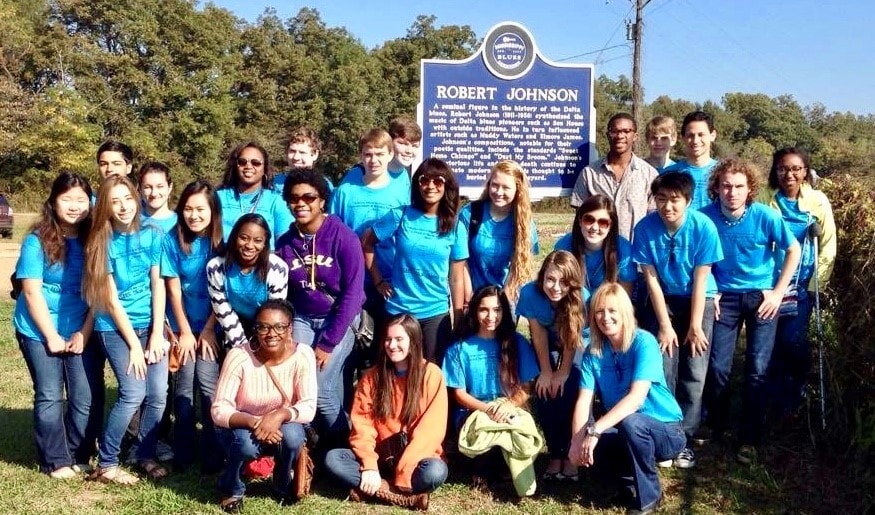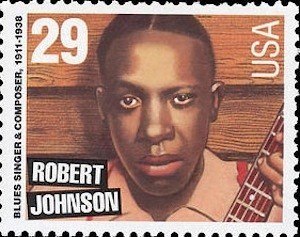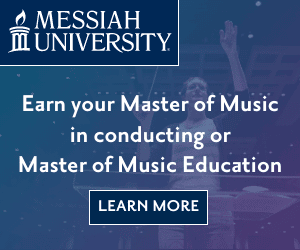/ News Posts / Guitar Class in the Magnolia State
Guitar Class in the Magnolia State
Number 27: The State of Mississippi
By Thomas Amoriello, Jr.
NAfME Council for Guitar Education Chair
M-I-S-S-I-S-S-I-P-P-I sung in a child-like voice may trigger youthful memories, or a 5th grade social studies report on “Ol’ Man River” may bring you back in time. In the world of music, Mississippi’s best known contributions to the guitar will always be that of the “King of the Delta Blues” Robert Johnson (1911-1938) who many consider to be the grandfather of rock ’n’ roll music as well as the home of Peavey Electronics, who are best known for innovations in the guitar and amplifier manufacturing industry.
In this edition of the NAfME Council for Guitar Education’s Guitar Class in 50 States series, we are fortunate to hear the thoughts of Ms. Dawn Barham who is enjoying her twentieth year as the Director of Performing Arts at the Mississippi School for Math & Science (MSMS). Under her tutelage are the Instrumental, Choral, and Guitar Performance Ensembles. Ms. Barham’s groups have performed for governors, legislators, mayors, presidential and vice-presidential candidates, and music legends like Bonnie Raitt and B.B. King. They have performed at the world famous Ground Zero Blues Club, Graceland, The Lawrence Welk Theater in Branson, Missouri, the International Thespian Festival in Lincoln, Nebraska, the annual Veterans Day Celebration on the Mississippi Gulf Coast, the Southern Cultural Heritage Center in Vicksburg, and numerous festivals, corporate events, and several holiday and seasonal concerts. She has implemented the guitar, songwriting, music technology, and contemporary music history curricula at MSMS. Ms. Barham holds her Master’s degree in Music Education from the University of Southern Mississippi, and she is a National Board Certified Teacher and a past quarterfinalist for the GRAMMY Music Educator AwardTM.

Please tell us about your school and overall music program.
I teach at the Mississippi School for Mathematics & Science (MSMS) in Columbus, Mississippi. We are a public, co-educational residential high school for academically abled juniors and seniors. Our students, who come to MSMS from all over the state, go through a rigorous application process for admission into the school. As the school name suggests, we have a legislative mandate to emphasize mathematics and science in our curriculum. However, MSMS boasts of award-winning arts and humanities departments. The music department curriculum includes: Guitar Studies, Guitar Performance, Instrumental Performance, Choral Performance, Class Piano, and Songwriting.
Please tell us about your own personal musical background growing up and your collegiate experience.
I cannot remember not being in love with the guitar. I began taking guitar lessons in the 3rd grade when my parents finally decided I wasn’t going to stop asking. I also played flute in my school’s band program and was a member of the school chorus. I received my Bachelor of Music Education with an emphasis on Classical Guitar from the University of Southern Mississippi under Giovanni DeChiaro. My Master of Music Education is also from the University of Southern Mississippi.
How do the guitar family of instruments fit into your teaching?
The guitar is my default teaching tool. I use it in most of my music classes. In Instrumental Performance, I demonstrate correct rhythms and phrases to all instruments, be it a tuba or alto saxophone. I use the guitar to teach vocal parts in choral performance. Frequently, I accompany the instrumental and choral performance ensembles in concert, either playing the guitar part or covering a missing part. In my songwriting course, I rely on the guitar extensively to teach and demonstrate many of the concepts covered in the class. The guitar is the centerpiece of our Guitar Studies and Guitar Performance courses.
What obstacles did you face when you were first hired at your school? Now?
Funding. It’s Mississippi; it will probably always be funding. It has been for my 30-year career. I was fortunate in that the administrator who hired me was also a guitarist. The school culture here also encourages trying new things. At first, guitar studies was treated as an independent study class which I took on outside of my regular teaching load. I knew if I could get a group ready to perform at one of our concerts in front of administrators and other students, adding guitar to the music curriculum as a bonified class would be much easier. It worked. Since 1995, my 2nd year at MSMS, Guitar Studies has been offered as a class.
What kind of classes related to the guitar do you teach?
Guitar Studies and Guitar Performance. Guitar Studies is for beginners. Guitarists and bassists who already play are included in our Instrumental Performance Ensemble. I include guitarists, bassists, and other string players in my Instrumental Performance Ensemble.
What would you like to say to the non-guitarist music educator who is about to or interested in incorporating the guitar into their program?
Do it. It can be used as an opportunity to learn along with students. Incorporate local guitarists to conduct seminars or master classes with students. With the advent of software, apps, smart guitars, YouTube instruction videos, online instruction, etc., teaching guitar without being a guitarist is far less daunting than it once was.
Do you have any success stories you would like to share about students (musical and non-musical)?
I love when former students send me recording projects, links to original material, video clips of performances and other musical successes they are enjoying. One former student produces tracks for some of today’s most successful mainstream artists. Several former students are now music educators.
What do you tell your talented students who are planning to pursue music or guitar studies in high school, college after they finish with you?
I always advise them to continue with lessons whether it be through the university they are attending or privately. I advise students to join collegiate ensembles that are available to them. I encourage them to create ensembles with peers with the goal of booking gigs at restaurants, churches, festivals, weddings, etc. What better way to make money than doing what you love?
Do you have any networking or advocacy tools that have worked for you promoting your program that would help other educators?
To promote the guitar program, I began by seeking out events that would be appropriate for a guitar ensemble performance. Upon reading that our state would be honoring native blues legend B.B. King at the capitol, I arranged to have the guitar ensemble perform. That performance allowed every legislator in the state the opportunity to hear the ensemble. I have never been turned down when offering to perform at civic or school events. Moreover, we are usually inundated with requests for performances. Another performance of note was being invited to perform for the Blues Marker dedication of Mississippi Fred McDowell in which Bonnie Raitt was in attendance. She had great things to say to my students about the importance of music education!
Additionally, local newspapers are happy to come out to events, take pictures, and interview students. Local television stations welcome student performances during community segments. Anytime you can showcase the school in a positive way, administrators notice.
I network via conferences, meetings, field trips, and online groups. I believe in sharing and collecting business cards, digital or otherwise, wherever I am.
What kind of future do you see for guitar in music education in the Mississippi school system?
With an adopted curriculum in place, I believe guitar could be taught through distance education. All of the schools in the state are wired; however, not all schools have music programs due to lack of funding. Therefore, schools could add music to their curriculum with a minimum monetary investment.
Given our musical history, I would think guitar programs would be more prevalent. There is still work to be done in advocating for its inclusion in the music curriculum.
What type of lesson plans have you done for your classes that may be unique?
One activity, which is more of a drill than a lesson plan, that the students enjoy is “Guitar Battle.” Students sit in two lines facing each other. Another student or I call a chord, note, or scale. The student who plays it first scores a point for their team.
Another unit consisted of lesson plans aimed at teaching ensemble and accompaniment skills. I arranged “What Child is This” for the ensemble to perform in the winter concert wherein they accompanied the school choir.
“Sights and Sounds of Mississippi” is a unique music program that occurs in the fall of each year at MSMS. I started the program 10 years ago. My students are with me for two years. I designed the program so that each student will have toured the state “musically” by the end of their two years. My performing ensembles, collectively known as the MSMS Blue Notes, prepare an exciting and dynamic program of music, all with ties to the birthplace of America’s music—Mississippi! Audiences will experience blues, jazz, spirituals, gospel, country, soul, and early rock and roll. Through the “Sights and Sounds of Mississippi” program, the students break down social and cultural barriers by making music together while engaging in an open and interactive conversation about diversity, culture, and history. We take our program on the road for three days—performing, visiting blues markers, museums, and other sites of historical significance as they relate to musical heritage.
Do you do any musical performance or activities outside of your public-school teaching duties?
I perform outside of school in two different bands and as a solo act. I have done a couple of CDs of original music. I also perform solo and ensemble gigs at weddings, churches, and private events.
Read more “Guitar Class in 50 States” articles:
- Number 50: The Granite State (New Hampshire)
- Number 49: The Green Mountain State (Vermont)
- Number 48: The Mountain State (West Virginia)
- Number 47: The Hoosier State (Indiana)
- Number 46: The Mount Rushmore State (South Dakota)
- Number 45: The Pine Tree State (Maine)
- Number 44: The Badger State (Wisconsin)
- Number 43: The Constitution State (Connecticut)
- Number 42: The Evergreen State (Washington)
- Number 41: The Pelican State (Louisiana)
- Number 40: The Beaver State (Oregon)
- Number 39: The Equality State (Wyoming)
- Number 38: The Empire State (New York)
- Number 37: The Old Line State (Maryland)
- Number 36: The Centennial State (Colorado)
- Number 35: The Bay State (Massachusetts)
- Number 34: The Sooner State (Oklahoma)
- Number 33: The Prairie State (Illinois)
- Number 32: The Hawkeye State (Iowa)
- Number 31: The Volunteer State (Tennessee)
- Number 30: The Palmetto State (South Carolina)
- Number 29: The Natural State (Arkansas)
- Number 28: The Tar Heel State (North Carolina)
- Number 26: The Peace Garden State (North Dakota)
- Number 25: The Treasure State (Montana)
- Number 24: The First State (Delaware)
- Number 23: The Buckeye State (Ohio)
- Number 22: The Yellowhammer State (Alabama)
- Number 21: The Sunflower State (Kansas)
- Number 20: The Great Lakes State (Michigan)
- Number 19: The Lone Star State (Texas)
- Number 18: The Bluegrass State (Kentucky)
- Number 17: The Golden State (California)
- Number 16: The Show-Me State (Missouri)
- Number 15: The Keystone State (Pennsylvania)
- Number 14: The Last Frontier State (Alaska)
- Number 13: The Beehive State (Utah)
- Number 12: The Peach State (Georgia)
- Number 11: The Cornhusker State (Nebraska)
- Number 10: The Gem State (Idaho)
- Number 9: The Old Dominion (Virginia)
- Number 8: The Aloha State (Hawaii)
- Number 7: The Land of Enchantment (New Mexico)
- Number 6: The Sunshine State (Florida)
- Number 5: The Grand Canyon State (Arizona)
- Number 4: The Ocean State (Rhode Island)
- Number 3: The North Star State (Minnesota)
- Number 2: The Silver State (Nevada)
- Number 1: The Garden State (New Jersey)
About the author:
 Thomas Amoriello Jr. serves as the chair on the NAfME Council for Guitar Education and is also the former Chairperson for the New Jersey Music Education Association. Tom has taught guitar classes for the Flemington Raritan School District in Flemington, New Jersey, since 2005 and was also an adjunct guitar instructor at Cumberland County College, New Jersey, for five years. He has earned a Master of Music Degree in Classical Guitar Performance from Shenandoah Conservatory and a Bachelor of Arts in Music from Rowan University. He is the author of the children’s picture books A Journey to Guitarland with Maestro Armadillo and Ukulele Sam Strums in the Sand, both available from Black Rose Writing. He recently made a heavy metal recording with a stellar roster of musicians including former members of Black Sabbath, Whitesnake, Ozzy Osbourne, Yngwie J. Malmsteen’s Rising Force, and Dio that was released on H42 Records of Hamburg, Germany. The record released on 12-inch vinyl and digital platforms has received favorable reviews in many European rock magazines and appeared on the 2018 Top 15 Metal Albums list by Los Angeles KNAC Radio (Contributor Dr. Metal). Visit thomasamoriello.com for more information.
Thomas Amoriello Jr. serves as the chair on the NAfME Council for Guitar Education and is also the former Chairperson for the New Jersey Music Education Association. Tom has taught guitar classes for the Flemington Raritan School District in Flemington, New Jersey, since 2005 and was also an adjunct guitar instructor at Cumberland County College, New Jersey, for five years. He has earned a Master of Music Degree in Classical Guitar Performance from Shenandoah Conservatory and a Bachelor of Arts in Music from Rowan University. He is the author of the children’s picture books A Journey to Guitarland with Maestro Armadillo and Ukulele Sam Strums in the Sand, both available from Black Rose Writing. He recently made a heavy metal recording with a stellar roster of musicians including former members of Black Sabbath, Whitesnake, Ozzy Osbourne, Yngwie J. Malmsteen’s Rising Force, and Dio that was released on H42 Records of Hamburg, Germany. The record released on 12-inch vinyl and digital platforms has received favorable reviews in many European rock magazines and appeared on the 2018 Top 15 Metal Albums list by Los Angeles KNAC Radio (Contributor Dr. Metal). Visit thomasamoriello.com for more information.
Did this blog spur new ideas for your music program? Share them on Amplify! Interested in reprinting this article? Please review the reprint guidelines.
The National Association for Music Education (NAfME) provides a number of forums for the sharing of information and opinion, including blogs and postings on our website, articles and columns in our magazines and journals, and postings to our Amplify member portal. Unless specifically noted, the views expressed in these media do not necessarily represent the policy or views of the Association, its officers, or its employees.
Catherina Hurlburt, Marketing Communications Manager. September 18, 2019. © National Association for Music Education (NAfME.org)
Published Date
September 18, 2019
Category
- Ensembles
Copyright
September 18, 2019. © National Association for Music Education (NAfME.org)








